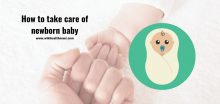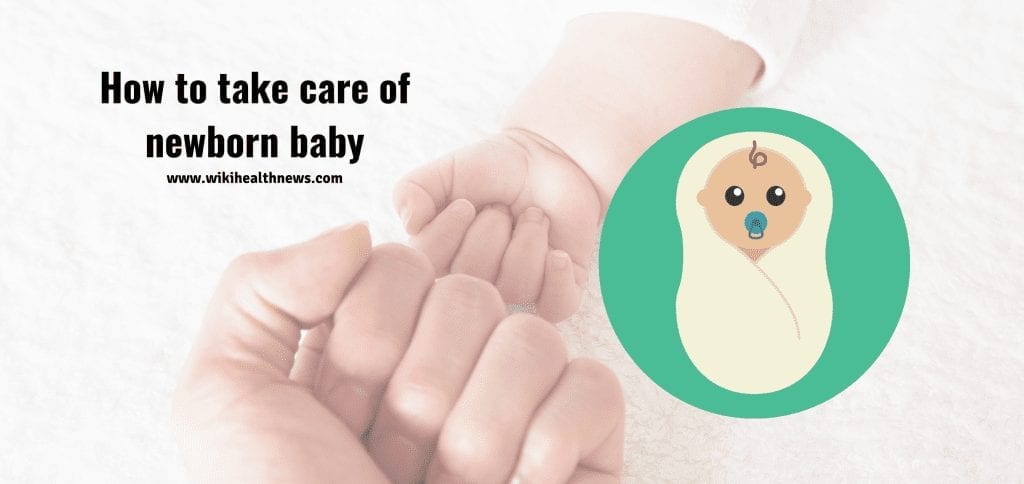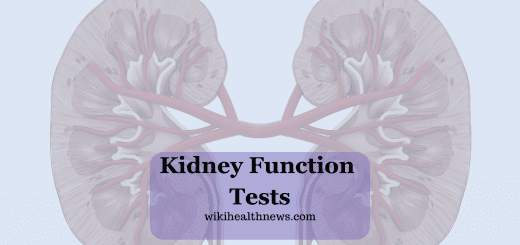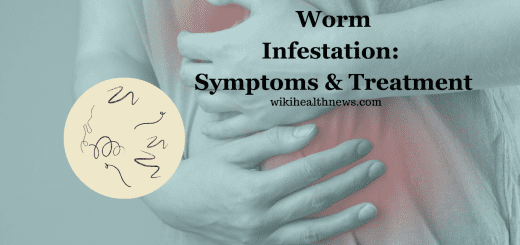How To Take Care Of Your Newborn Baby?

How to take care of your newborn baby?
Newborn babies need the utmost care for survival in the first 28 days of life. These days after the birth of new-born is the most susceptible time of life. One in every 35 babies dies within the first month of life in developing countries. This global burden of new-born deaths is alarming with many babies dying of preventable and treatable conditions. Particularly in low and middle-income countries poor neonatal care may lead to disability in later life. The major causes of loss of newborn babies are respiratory disorders, prematurity, sepsis, and hypothermia. These conditions can be prevented by taking affordable and effective steps.
Breastfeeding
The milk of mother is uniquely important for the nutritional need of the own baby. Indeed, human milk is an exceptionally rich with thousands of constituents. Artificial milk cannot replicate the exact composition and dynamic quality of breast milk. Also, breast milk is a dynamic food which changes its composition according to the need of the new born baby.
- Breast milk is easily digestible and very well utilized by the newborn baby.
- It also protects the infant’s gut from infections by promoting beneficial bacteria and by inhibiting the growth of harmful microbes.
- Moreover, breast milk provides the newborn baby with a host of immunity boosters that support the child’s immature immune system and protect against infections.
- As mother and baby share a common environment, the mother’s milk offers protection against infections that surrounds the baby.
- Breast milk contains many hormones and growth factors that help in the growth and development of the baby.
- Mothers’ first milk colostrum is highly useful for a newborn.
- Breastfeeding is often mentioned as a facilitator of mother-baby bonding
Immunization
Vaccines for your newborn are crucial for early-life immunization. According to the World Health Organization (WHO) guidelines, your baby needs
- BCG vaccine is given to prevent tuberculosis in endemic areas
- Diphtheria, Tetanus, and Pertussis (DTaP)
- Oral or inactivated Polio vaccine is essential
- Hepatitis B vaccine (HBV), measles vaccine, and Haemophilus influenzae type b (Hib) vaccine
- Immunization of pregnant mothers can protect new born babies through transmission of antibodies to the foetus.
Cord care
- The umbilical cord supplies the baby to its food and oxygen in the womb. It is clamped and cut at birth.
- The cord stump usually dries in 15 days. It shrinks and becomes black before falling off the baby’s belly button.
- Without proper care, the baby may become infected through the cord stump.
- Usually, the cord is kept sterile and dry. It can be covered by loose and clean clothes.
- Hand washing is crucial before touching the baby. You can use antiseptics for cord dressing if there is a chance of infection.
Thermo-regulation
- The maintenance of fixed body temperature is important to all humans. This is more so for newborn babies (neonates). It is one of the major changes that happen after birth.
- When your baby is inside the womb, her body temperature depends on the temperature of your blood. As the metabolic processes are high in an unborn baby her body is slightly warmer. Newborn babies lose heat rapidly after birth and during the first half-hour of life.
- The reason for the sudden cooling of the newborn body is room temperature, which is lower than the mother’s temperature, and the evaporation of the amniotic fluid from their skin.
- Full-term new-borns are warm-blooded, while those born prematurely have no such ability due to the late-maturing thermoregulation system.
- The core and the surface temperature of the body are one of the most important elements of neonatal temperature stability. Any changes in it constitute a risk to the newborn’s health and life.
- On the other hand, the temperature is a reflection of inside changes in the newborn’s body.
- Therefore, maintaining and monitoring the temperature of different body areas is extremely important.
Baby should not be nursed in separate room from you after delivery
- Mothers and babies have a physiologic need to be together at the moment of birth and during the hours and days that follow.
- Keeping mothers and babies together is a safe and healthy birth practice. Mothers and babies have a physiologic need to be together during the moments, hours, and days following birth, and this time together significantly improves maternal and newborn outcomes.
- The sensitive period during the first hour or so after birth is significantly influenced by elevated levels of the maternal reproductive hormone, oxytocin, which crosses the placenta to her baby.
- Oxytocin, which increases significantly during skin-to-skin care, promotes maternal/newborn attachment, reduces maternal and newborn stress, and helps the newborn transition to postnatal life.
- When the newborn is placed skin-to-skin with the mother, this heightened response stimulates behaviors that help to meet the newborn’s basic biological needs, activates neuroprotective mechanisms, enables early neurobehavioral self-regulation
Things to do for your newborn
- Don’t cover the umbilical cord with a bandage.
- Umbilical stump be not soiled
- Breastfeeding a newborn immediately after delivery
- Feed breast milk regularly at an interval of 2–3 hours per day.
- Your baby needs exclusive breastfeeding in the first six months of life.
- Feeding colostrum
- A newborn requires vaccination at birth
- Vaccination of newborn prevents disease
- Receive BCG vaccine at birth
- Receive OPV vaccine at birth
- BCG protects a newborn baby from Tuberculosis
- OPV protects a newborn baby from Polio
- Eye discharge is a sign of an eye infection
- Reddening of Eyes is a sign of eye infection
- The swollen eye is a sign of eye infection
Knowledge about danger signs of newborn
- Yellowish discoloration of eyes, palms, and soles
- Unable to breastfeed
- Abnormal jerking movement of limbs and eyes
- Difficulty of breathing
- High-grade fever
- A baby cold to touch
- Lethargic baby
- Abdominal distention
- Vomiting /diarrhea
- Crying excessively
Prenatal counselling
- The most important focus of prenatal counseling is to begin a positive relationship with your baby and understand the needs of a newborn.
- You can discuss the medical and psychosocial history and potential high-risk situations of your family. Try to learn the effects of such medical problems on your baby.
- Understand your medical and pregnancy events and their effects on the baby. These include any history of depression and the use of medication, tobacco, or other substances.
- Maternal and paternal family medical history, including the ethnic background. You can also discuss about the history of atopy, diabetes, neonatal jaundice, and children who have birth defects or serious illness.
- Social history, including parental employment, education, planned maternity/paternity leave, and the individuals who will be the support system for the family.
- Feeding plan and discussion of current breastfeeding recommendations
- Anticipatory guidance

Read more











